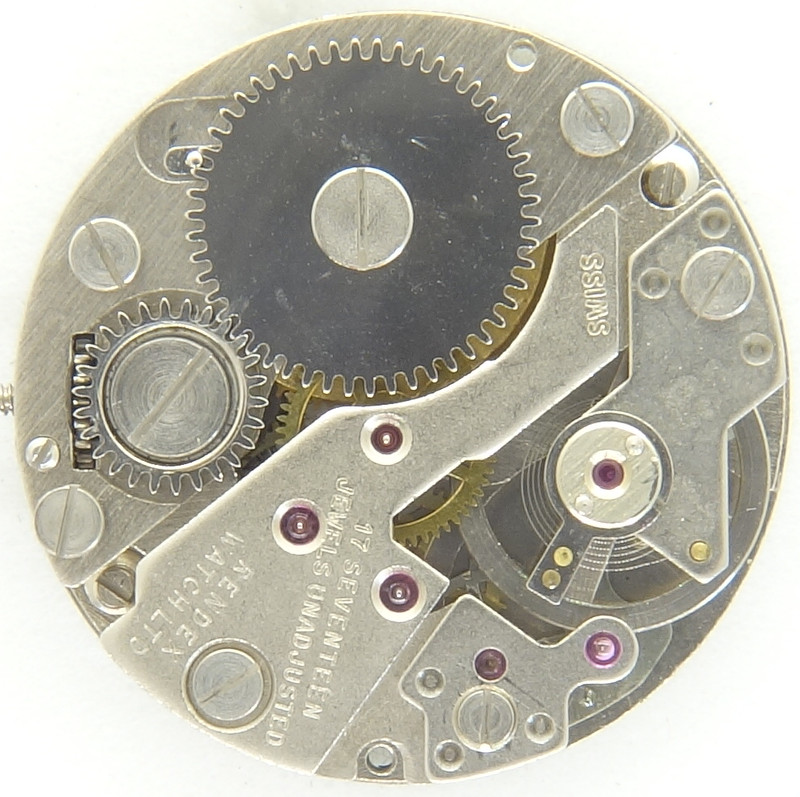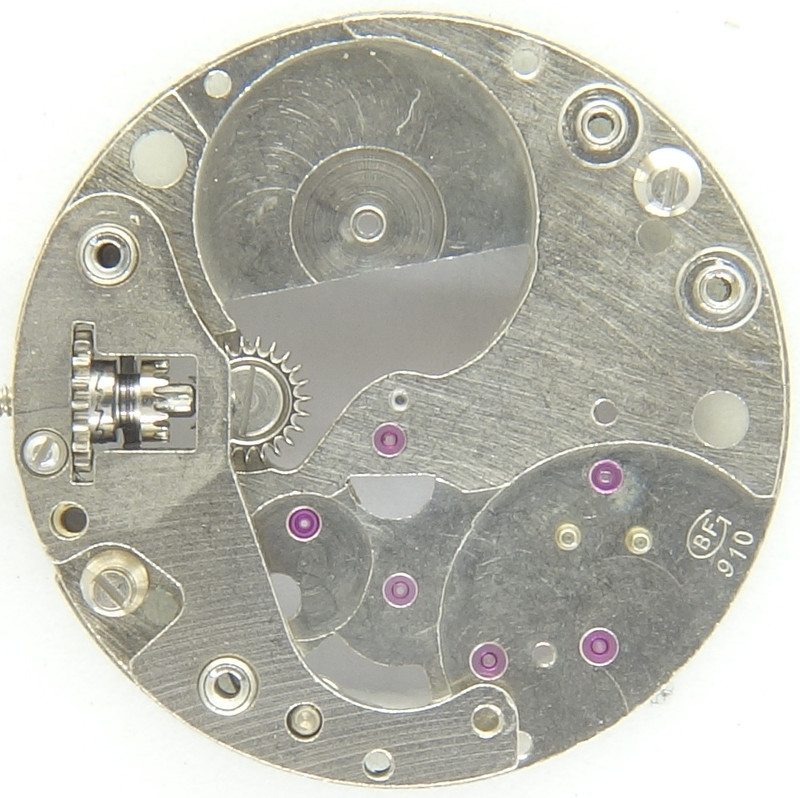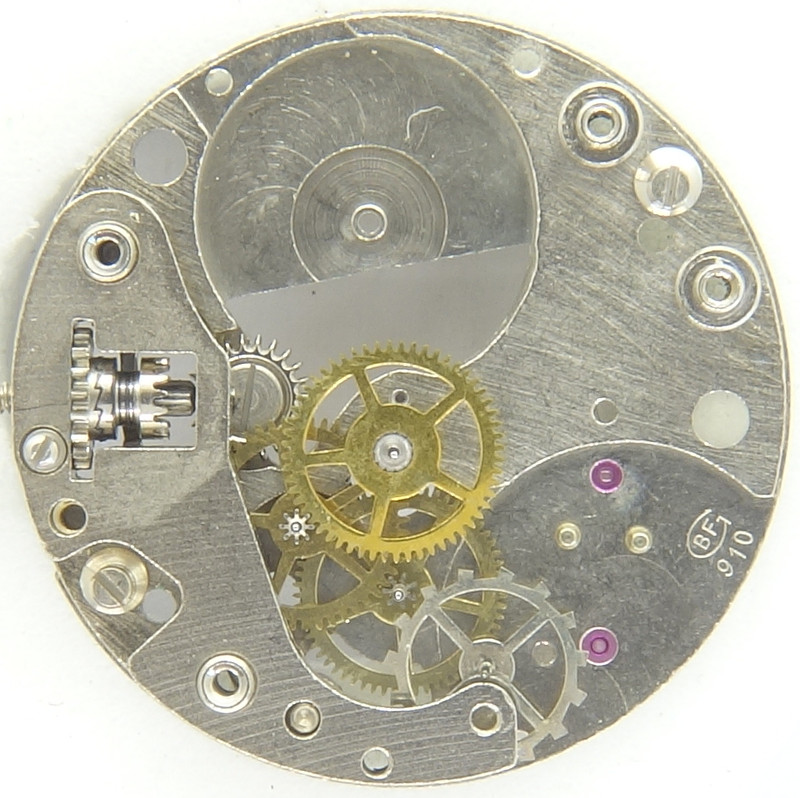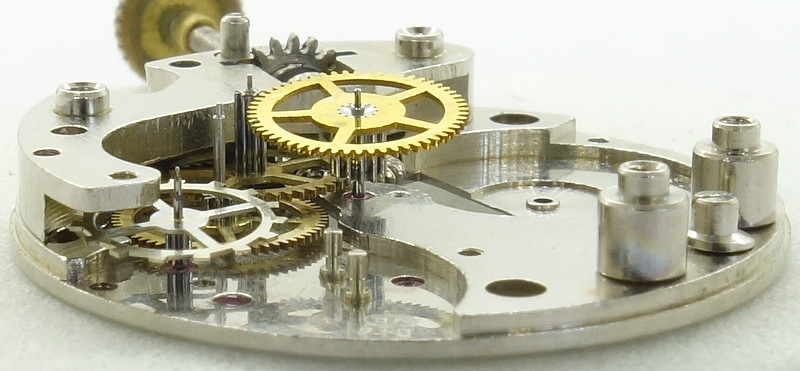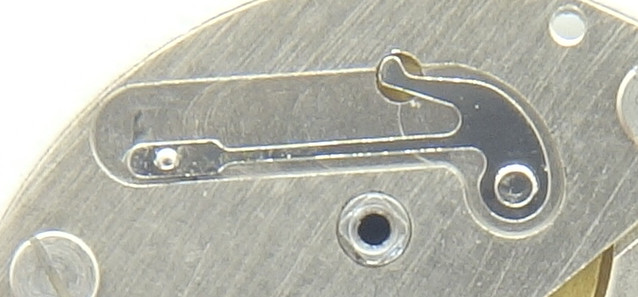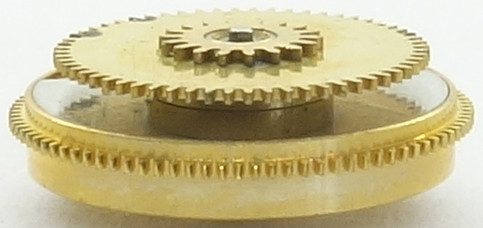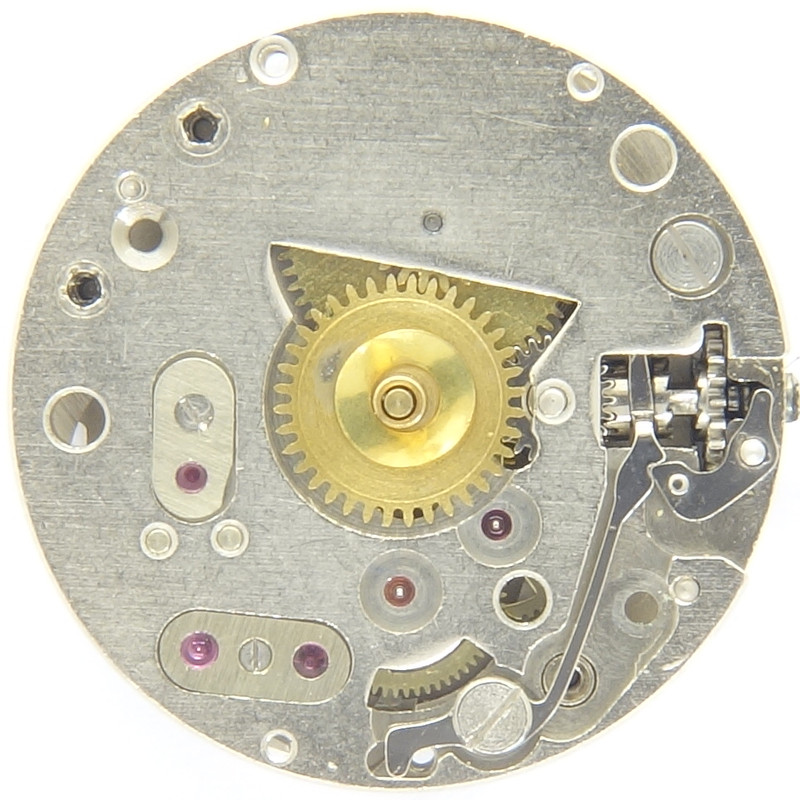Description
In the early 196os, the swiss pin lever ebauche manufacturer Baumgartner, also known under their abbreviation BFG, released their caliber Baumgartner 910.
With a diameter of only 19.3mm (8 3/4 lignes), it was one of the smaller pin lever movements in Roskopf construction.
The base plate of this mix between a massive- and a pillar construction shows the pretty high quality of this movement, since except the main spring barrel, all axles are ruby-beared.
If you look exactly, you see, that below the center hands tube, thus located decentally, there’s the second wheel, but no conventional center minute wheel.
As usual on pin lever movements with a Roskopf construction, the large mainspring barrel, which covers the center of the movement, drives the large driving wheel, followed by third wheel, seconds wheel and stell lever wheel.
On the other hand, the beating rate of 18000 A/h is pretty unusual for a Roskopf-type pin lever movement, but would enable a decentral seconds indication at 6 o’clock.
The flat anular balance of the BFG 910 is not yet shock protected and its precise frequency can be only be adjusted directly at the hairspring key. You cannot expect more on a movement of this price class.
The ratchet, which is located on the movement side, is a pretty genious construction: It consists only of one single part, a click, which is also its spring, beared in a depthing on the barrel bridge, covered by the ratchet wheel.
Here’s the final proof for the Roskopf construction: The mainspring barrel has got a slipping clutch on the dial side, which carries the double hands driving wheel, which drives hands at the same time (with different speeds, of course).
The Baumgartner 910 looks surprisingly good on the dial side: There’s a yoke winding system - a simple, but efficient one, which consists of only two parts, the yoke and the setting lever.
And the mystery of the large number of 17 jewels, which are not easy to reach for a pin lever movement, can be solved, too: The bearings for lever and escape wheel have got a cap jewel each. Technically, it is not really neccessiary (especially not on the oil-free) lever bearing, but it doesn’t harm, too.
Timegrapher result
You cannot expect rates from a pin lever movement, especially, when it was for a long time, but at least in one position, the rates are really good:| horizontal positions | |||
|---|---|---|---|
| dial up | +29 s/d | 270° | 1,0ms |
| dial down | +3 s/d | 319° | 0,8ms |
| vertical positions | |||
| crown right (12 up) | -80 s/d | 195° | 2,4ms |
| crown up (3 up) | -50 s/d | 236° | 1,2ms |
| crown left (6 up) | -170 s/d | 203° | 1,2ms |
| crown down (9 up) | +140 s/d | 162° | 2,1ms |
Technical data
| Manufacturer: | Baumgartner |
| Caliber: | 910 |
| Size: | 8 3/4''' (measured: 19,3mm) |
| A/h: | 18000 |
| lift angle: | 50° |
| Number of jewels: | 1/17 |
| Escapement: | Pin lever |
| Balance types: |
Nickel anular balance |
| Shock protection(s): |
none Novodiac |
| Balance bearing / direction hairspring: | Clockwise |
| Moveable stud: | no |
| Adjust mechanism: | Hairspring key |
| Construction: |
|
| Construction type: | pillar construction |
| Winding mechanism: | yoke winding system |
| Setting lever spring: | 1 hole(s) |
| References: |
Flume: 1962 22 |
| Inventory number: | 20008 |
